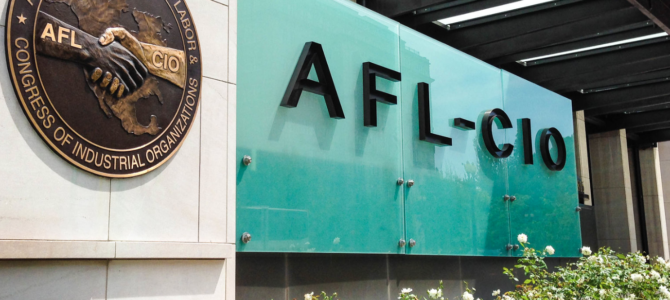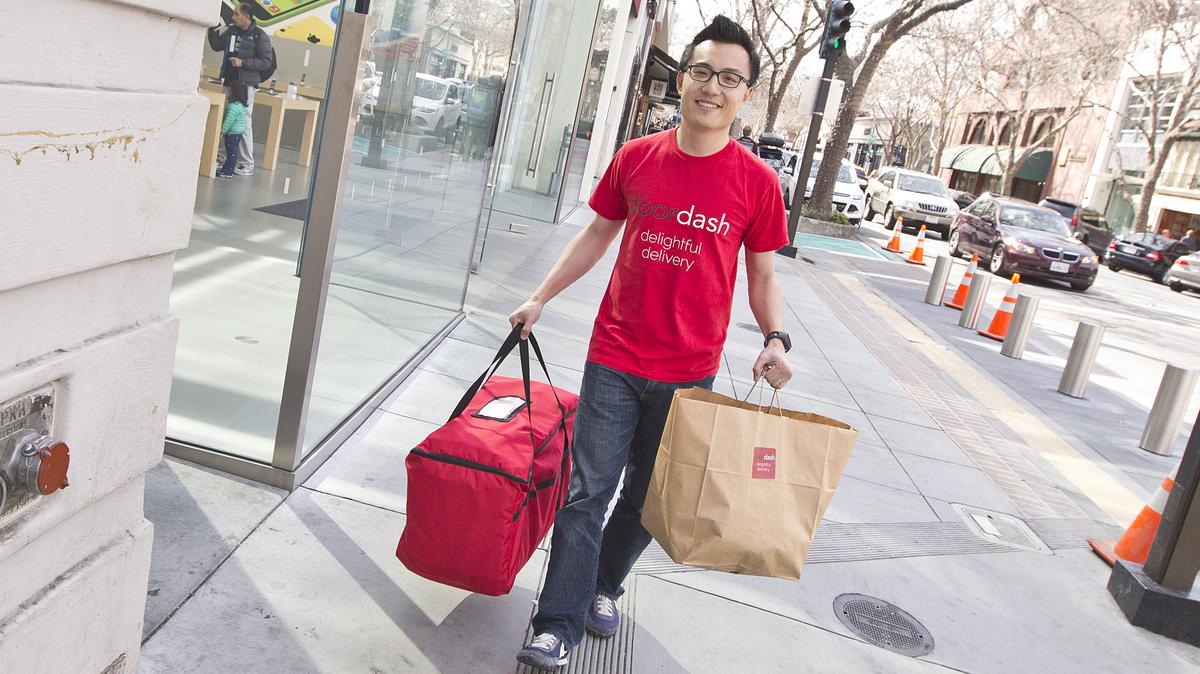
Freelancers are organizing to combat new legislation that restricts their ability to earn a living, which is exactly what the AFL-CIO doesn’t want. A stronghold of the labor movement since the two entities merged in 1955, the AFL-CIO’s survival depends on an increase in unionization. As the old industries die or move overseas, the union of unions needs to reach new sectors.
Its latest attempt is through joining with local lawmakers to craft legislation that would either forcefully organize workers who are not even classified as employees, or deny them their right to earn a living on their own terms. The AFL-CIO helped craft California’s disastrous AB-5, which is being used as a basis for similar legislation across the United States, and is behind lawmakers in New York. Freelancers are fighting back, creating groups where they can organize and advocate for their rights.
In localities where these laws are up for consideration, as in New York State Senate Bill S6699A and New Jersey S4204/A5936, freelancers and independent contractors across industries have been teaming up to oppose them. These freelancers are often politically left and have in many cases cast their votes for those same representatives that would now deprive them of their livelihoods.
An open letter to Democratic National Committee Chairman Tom Perez opens with, “We, the entrepreneurs of California, New Jersey, and New York, need your expertise to save our careers from well-intentioned, but misguided Democrats.”
The anti-independent contractor laws will do to these women what the NJ Association of Women Business Owners told NJ's governor: “have a destructive effect on women-, minority- and veteran-owned businesses.” #fightforfreelancers
— Fight4Freelancers (@Fight4Freelance) January 3, 2020
The AFL-CIO Wants to Protect Unionization
Money for organizing is down, union dues are in decline, and the 2018-19 AFL-CIO budget dedicates 35 percent to funding political action and activities. That’s why the AFL-CIO is teaming up with labor-oriented lawmakers to get these bills passed. More employees means more people who can be organized, which means more people who will pay dues and give their autonomy to employment regulations.
The labor push to get low-skilled workers onto the employment rolls of the companies for which they gig is a way to make these laws sound palatable. Labor-oriented legislators and the AFL-CIO say they want gig workers to have the protections of unionized workers. But in practice, these laws run afoul of freelancers who want to operate independently.
Many Democratic voters who hear about these laws will think they apply to someone else, to low-skilled workers, not to creatives like themselves. This is a mistake. Organized labor and lawmakers don’t want everyone to be de facto small-business owners. Workers have moved away from unionization, and models of work have changed — in part because of industry changes, but also because this is how people have chosen to work. What we do is not bound by who we work for. Because this hurts union coffers by reducing membership, unions are seeking to recapture workers who have deliberately moved away from them.
Gig Laws Will Hurt Freelancing Parents the Most
The National Press Photographers Association has filed a lawsuit against AB-5, and the arbitrary 35-submission cap a photojournalist can sell to any one outlet. It claims this is a First Amendment issue. Forcing freelance photographers to become employees would make their photos the property of their employers, whereas freelance photojournalists retain their copyright.
Left-leaning outlet Romper reports that these gig laws will disproportionately affect working parents, who work from home to raise their children while also earning a living. These people do not want to be bound by employment laws just because the AFL-CIO wants to capture their labor. Working parents know what’s best for themselves and their kids.
It makes sense that this is the kind of law the AFL-CIO would want passed. It wants workers to organize into labor unions and become dues-paying members. But before workers can organize against employers, they need to be employed. That so many workers will not be able to ply their trade isn’t a worry for big labor, which cares more about union membership rather than worker choice.
Democrats Are Curbing Workers’ Choice
In his 2020 State of the State address, Gov. Andrew Cuomo, who was endorsed by the AFL-CIO, emphasized the importance of New York’s “economic justice crusade.”
“Large corporations have dominated and taken advantage of workers for too long,” Cuomo said. “We too must protect workers from today’s threat: economic exploitation. This year, more than 40 percent of the workforce will be in jobs related to the gig economy. It’s an economy which has spurred growth and many innovations. But it’s an economy where too many workers are excluded from the progress of fair pay and independent contractors. Too many corporations are increasing their profits at the expense of the employee and the taxpayer and that must end. It’s exploitative. It’s abusive. It’s a scam. It’s a fraud, and it must stop now.”
The employment laws Democrats want to pass, about sick leave, minimum wage, paid family leave, paid child care, and others designed to engineer family structure, become meaningless if people are able to set their own priorities about work/life balance. So they must destroy people’s power to design their own work lives, in order to shuffle them into programs Democrats have decided are better for them.
Another aspect of the gig laws could be state legislatures taking on the task of organizing freelancers. In this scenario, lawmakers would sign on freelancers to a union wherein workers would pay dues, and elected freelance union reps would negotiate rates and benefits within any given industry. This idea was floated at a talk hosted by City & State with New York Assemblywoman Diane Savino, who is sponsoring the New York version of the bill. The idea is that even if freelancers retain their independent status, they should be able to form traditional labor unions and have a right to collective bargaining.
Workers Will Fight to Keep Their Rights
The pushback against the proposed bill in New Jersey was so strong that the bill will not be up for a vote before the legislative session ends Jan. 14. The freelancers and gig workers who are being targeted who have poured countless hours of education and work into building careers that allow them to live and work independently from employment constraints.
The irony is that the big tech companies such as Uber and Lyft, whose gig labor workers are touted as the intended target, have enough legal capacity to gain exemptions from these laws. These laws won’t help the workers they are intended to, but they will destroy the livelihood of creatives who voted for these Democratic politicians.
The AFL-CIO is taking a big gamble. No longer able to force employees to unionize, it is trying to force people into employment. But freelancers are innovative, and they will harness their power to fight against those who would box them in and rule their lives. Freelancers are accustomed to taking risks, and trust their ingenuity to succeed or fail on their own terms.









